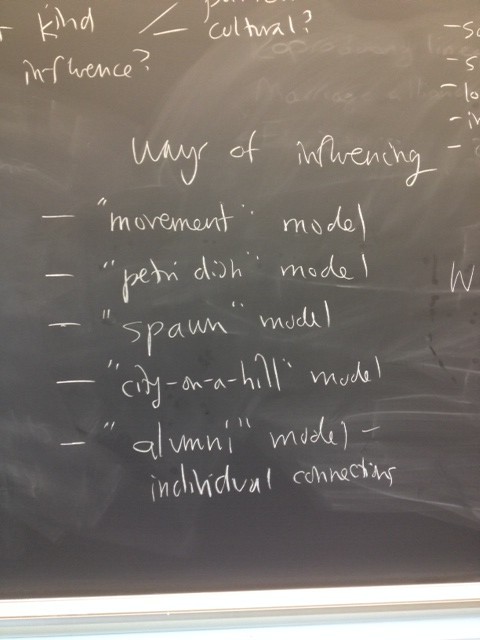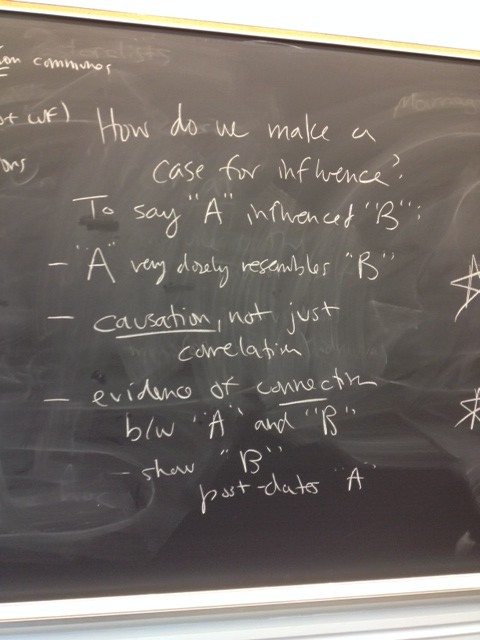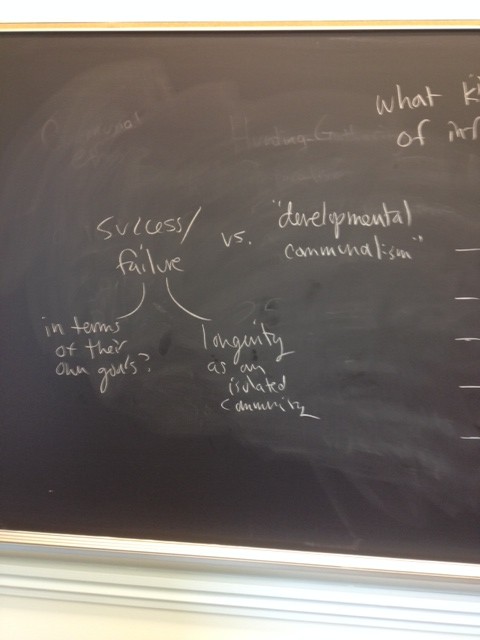How do you know when you’ve written a good history paper—a work of original scholarship that contributes to the field?
In this brief chart, Dr. William J. Turkel imagines what it would be like to answer that question in retrospect, after the paper is finished. Of a "better than average" paper, you’d be able to say "you began thinking about it right away, and you’ve been mulling it over constantly ever since," whereas a "worse than average" paper would be one where "you didn’t have time to think about it until the week it was due."
Similarly, a "better than average" paper would be one where you did so much research, that you "discovered (and read through) a lot more sources than you could cite." A "worse than average" paper is one in which "you cited everything you found" because there was little to find.
We are starting our "benchmark assignments" this week because starting this early is the best way to put you in position to write a "better than average" paper. With these assignments, you’ll be able to get feedback all along the way about the research project. But the principles outlined in that chart apply to these assignments as well: a "better than average" assignment is one that selects the best of the work you’ve done, rather than presenting all of what you’ve done, while an acceptable assignment is one that meets the minimum requirements.
Put another way, the more that you give us in the benchmark assignments, the more feedback we (I and your fellow classmates) will be able to give you. The path to a "better than average" end product begins now, even with this first assignment.
The requirements for this "two topics memo" are listed on the assignments page: "a short, one-page list of two potential research topics, along with at least two primary sources and two secondary sources you have identified on each topic."
The "at least" in this description is included intentionally in the spirit of Turkel’s recommendations. The more you can find on each topic, the better off you’ll be in the long run. Conversely, if you have difficulty finding sources at this stage, that could indicate a need to rethink your topic.
That said, the "two primary and two secondary source" minimum is provided as a threshold, because it could be that there are more sources than you’re aware of—sources that I can help you locate as part of the feedback on your memo. The more you can tell us about what you’ve done within the confines of about one page, the more we can help you move to the next stage. But if all you’ve been able to find are two sources, we need to know that, too, so we can help you evaluate the likelihood that enough sources will be available to you to answer an historiographically significant question.
To sum up, the exact format and requirements of the "benchmark assignments" are less important than the general principles outlined by Turkel: the more you accomplish at each of these early stages, the more likely you’ll be able to look back at the end of the semester and tell that you’ve written the best paper you can write.
Please send me your memo by email by noon on Wednesday, and bring a copy with you to class.






